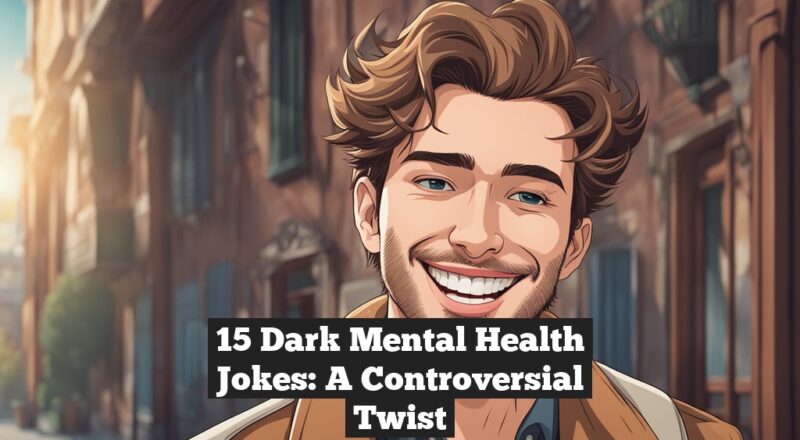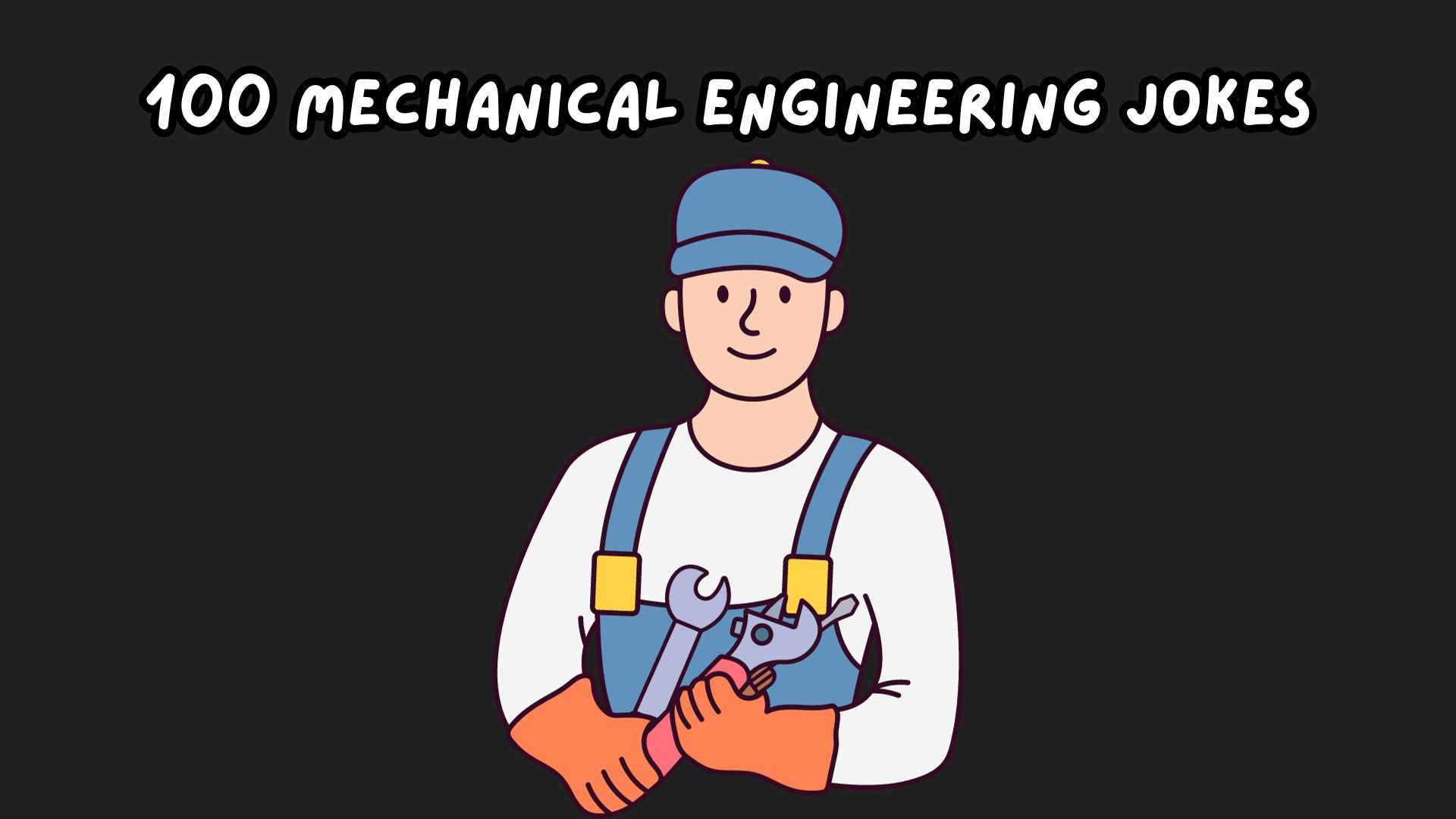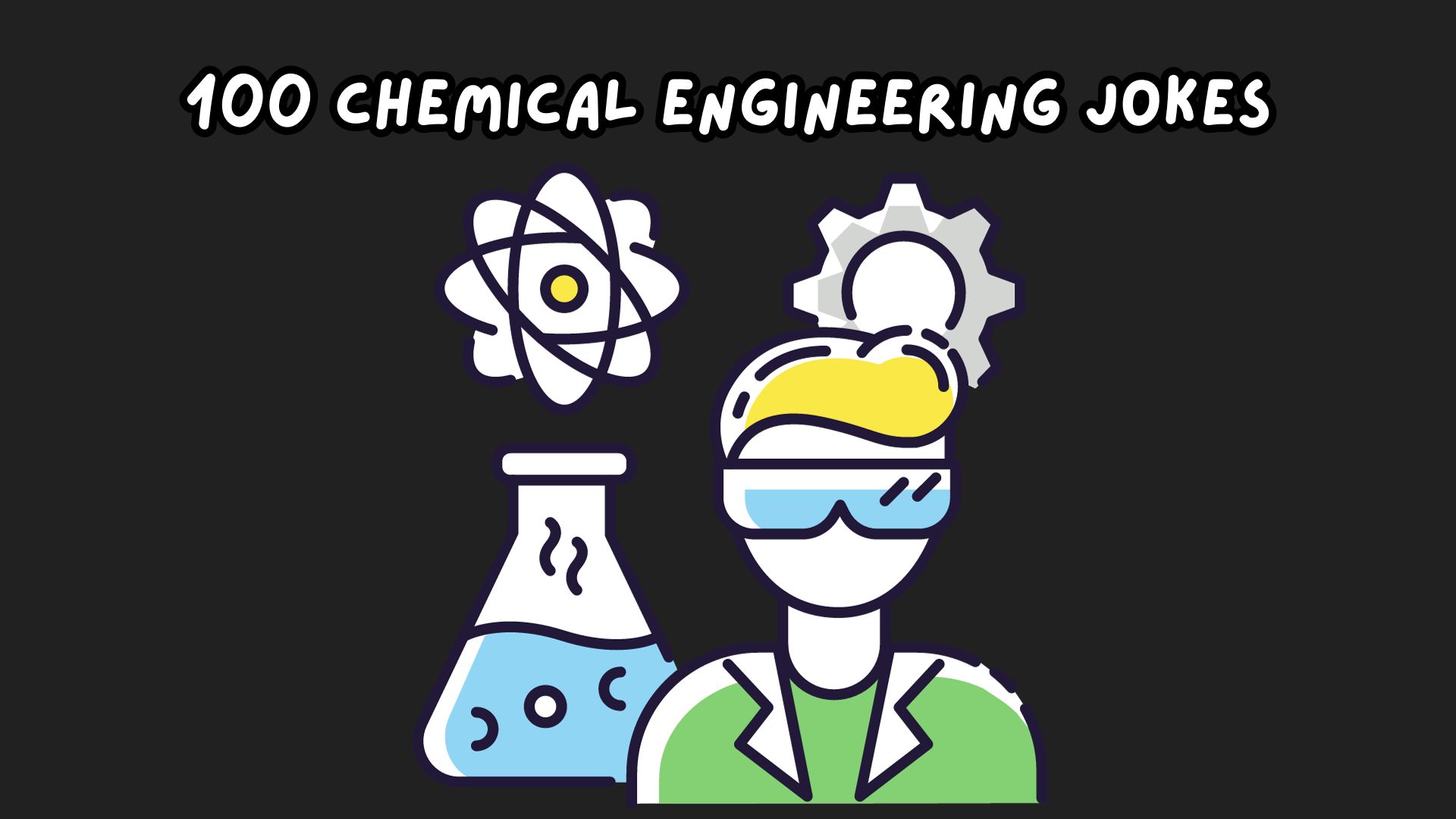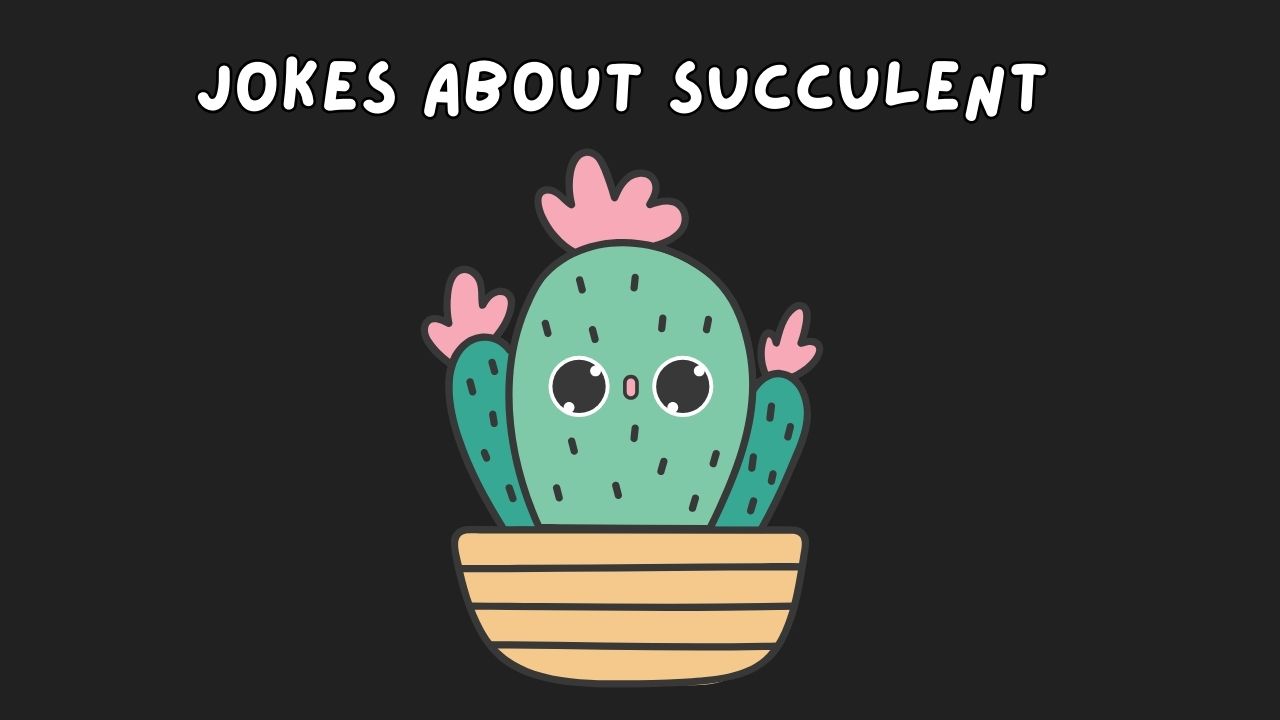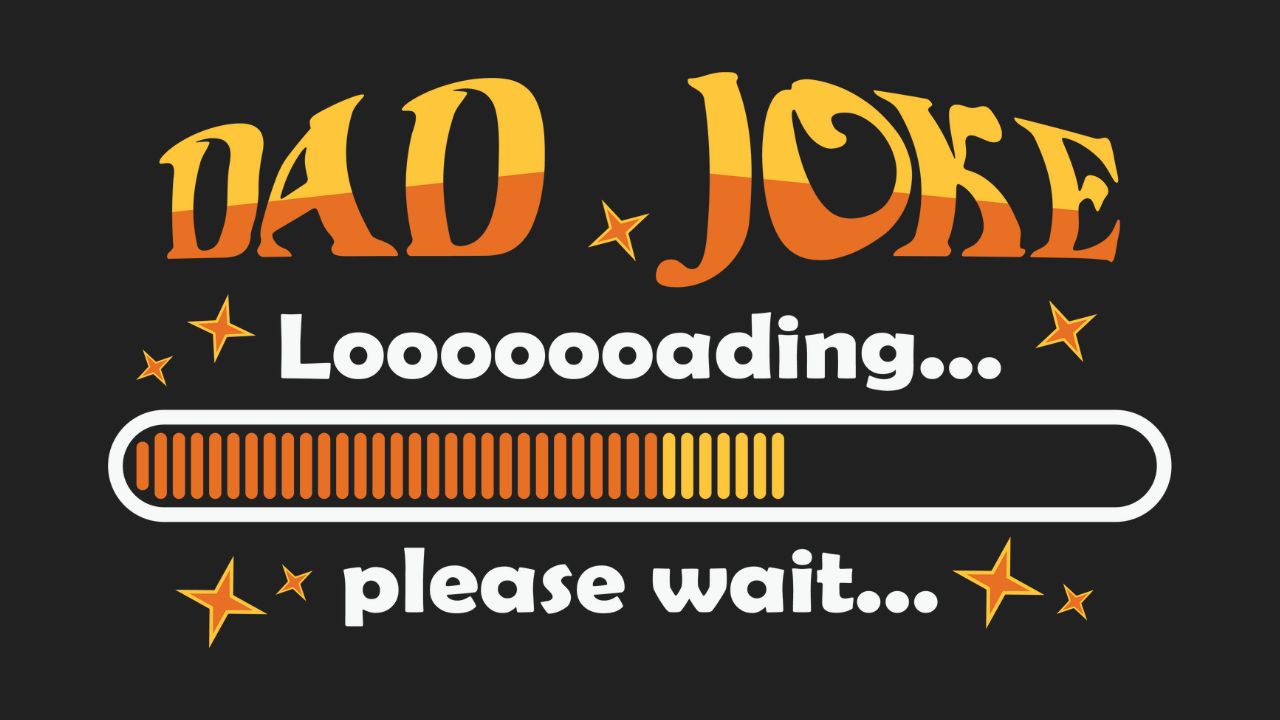Introduction:
Mental health is a serious issue that affects millions of people worldwide. While it is crucial to treat this topic with sensitivity and respect, some individuals use humor as a coping mechanism to help them navigate difficult times. In this article, we present 15 dark mental health jokes that add a controversial twist to lighten the mood. Please keep in mind that these jokes are meant to be taken lightly and not make light of the actual struggles people face regarding mental health issues.
Joke 1: The Emotionally Challenged Emoji
Question: What emoji perfectly represents someone with emotional challenges?
Answer: The “emoji”onal wreck! 🤦♀️
Explanation: This joke plays on the concept of emotions and the popular use of emojis in our daily lives. The wordplay on ”emotional” and “emoji” creates a lighthearted twist. However, it is essential to remember that emotional challenges are genuine and should be treated with empathy and support.
Joke 2: The Depressed Cloud
Question: Why did the cloud see a therapist?
Answer: It was feeling a little “stormed” out! 🌧️
Explanation: This joke combines the idea of a cloud with the emotional state of feeling “stormed out.” The play on words adds a touch of humor to the situation, highlighting the importance of seeking professional help when dealing with overwhelming emotions.
Joke 3: The Anxious Chicken
Question: How does a chicken with anxiety handle daily situations?
Answer: It crosses the road and then panics about whether it made the right decision or not! 🐔
Explanation: This joke uses the common phrase “Why did the chicken cross the road?” to address someone’s anxious tendency to overthink and doubt their choices. While anxiety is a serious condition, this joke attempts to bring a lighthearted perspective to it, promoting a sense of understanding and empathy.
Joke 4: The OCD Astronaut
Question: Why did the astronaut with OCD get frustrated during their space mission?
Answer: Because everything had to be absolutely “space-tacularly” organized, and floating objects just didn’t fit that criterion! 👩🚀
Explanation: This joke combines the idea of a highly organized astronaut with the challenges of living in a zero-gravity environment. While it plays on the stereotypes surrounding OCD tendencies, it is essential to remember that OCD is a serious mental health condition and shouldn’t be trivialized.
Joke 5: The Sleep-Deprived Vampire
Question: Why did the vampire join a therapy group?
Answer: It was struggling with the feeling of being “un-rested” all the time! 🧛♂️
Explanation: This joke takes a supernatural twist on the relatable experience of feeling constantly tired. The play on words of “un-rested” adds a touch of humor while acknowledging the importance of seeking support for sleep-related issues.
Joke 6: The Paranoid Smartphone
Question: Why did the smartphone start seeing a therapist?
Answer: It was convinced that everyone was “screen-viously” watching its every move! 📱
Explanation: This joke blends the concept of feeling watched or monitored with the omnipresence of smartphones in our lives. It pokes fun at our tendency to believe we are under constant scrutiny but reminds us to be mindful of privacy concerns in the digital age.
Joke 7: The Schizophrenic Zebra
Question: Why was the zebra mistakenly diagnosed with schizophrenia?
Answer: It just couldn’t convince anyone that it indeed had two “strikingly” different personalities! 🦓
Explanation: This joke plays on the distinctive black and white stripes of a zebra, suggesting that it might have multiple personalities. While it attempts to create a lighthearted moment, it is vital to respect the challenges faced by individuals diagnosed with schizophrenia, a complex mental health condition.
Joke 8: The ADHD Squirrel
Question: Why did the squirrel with ADHD struggle to store enough food for the winter?
Answer: It got constantly distracted and “nutticed” its supplies were never enough! 🐿️
Explanation: This joke combines the scatter-brained nature of a squirrel with the challenges of attention deficit hyperactivity disorder (ADHD). While the joke adds a humorous touch to the situation, seeking proper treatment for ADHD is essential to thriving in daily life.
Joke 9: The Bipolar Lightning Bolt
Question: How does a bipolar lightning bolt behave?
Answer: It can go from “shockingly” happy to thunderously angry in no time! ⚡
Explanation: This joke combines the rapid shifts in mood associated with bipolar disorder with the suddenness of lightning strikes. While it aims to provide a light-hearted moment, it’s essential to remember that bipolar disorder is a serious condition that requires proper medical attention.
Joke 10: The Socially Anxious Flower
Question: Why did the socially anxious flower have a hard time making friends?
Answer: It was petal-fied of the social “butterflies” that always seemed to flit around! 🌸
Explanation: This joke combines the concept of social anxiety with the symbolic representation of butterflies as social interactions. It light-heartedly acknowledges the challenges faced by socially anxious individuals while reminding us to be compassionate and understanding when interacting with them.
Joke 11: The Dependent Spider
Question: Why did the spider become emotionally dependent on its web?
Answer: It felt a “web” of overwhelming attachment towards its creation and found it too “sticky” to leave! 🕷️
Explanation: This joke humorously personifies the emotional attachment one could develop, much like a spider with its web. However, it’s important to remember that emotional dependency can be unhealthy and seeking assistance to establish healthier boundaries is crucial.
Joke 12: The Psychoanalyzed Dolphin
Question: Why did the dolphin seek therapy?
Answer: It just wanted to “porpoisefully” share its deepest secrets with a professional listener! 🐬
Explanation: This joke brings the concept of therapy to a playful underwater scenario, depicting a dolphin seeking professional help as a way to express its thoughts. While it adds a light-hearted touch, it’s important to remind ourselves that therapy is beneficial for humans to address mental health concerns.
Joke 13: The Obsessive-Compulsive Cat
Question: Why did the cat with obsessive-compulsive tendencies drive its owner crazy?
Answer: It had a “purrfectionistic” obsession with aligning all its toys in a particular order, causing its owner to question their own sanity! 🐱
Explanation: This joke uses the playful nature of cats and aligns it with obsessive-compulsive tendencies. While it aims to create a humorous situation, it’s crucial to remember that people with obsessive-compulsive disorder might experience great distress if their rituals are not followed.
Joke 14: The Manic Artist
Question: How does a manic artist finish a painting so quickly?
Answer: The brush strokes at lightning speed with a “manic-stoke-ic” inspiration that fuels their creativity! 🎨
Explanation: This joke combines the rapid energy and creativity associated with mania in bipolar disorder with the speed at which an artist might work when going through a manic episode. While it adds a touch of humor, it’s crucial to address and support individuals experiencing manic phases with appropriate medical care.
Joke 15: The Eating Disorder Cookie
Question: Why did the cookie experience an identity crisis?
Answer: It couldn’t decide whether it was “chipped” or “oat-standing,” causing a crumble within its very essence! 🍪
Explanation: This joke brings attention to the complex nature of eating disorders, represented by a cookie experiencing an identity crisis related to being too “chipped” or ” Oat-standing.” It aims to create a light-hearted moment, but it’s important to remember that eating disorders are serious mental health conditions that require understanding and support.
